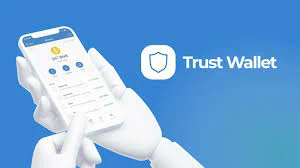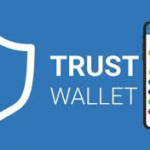The Evolution and Impact of Wallet Extensions in Digital Transactions
## Introduction
In the rapidly evolving landscape of digital transactions, wallet extensions have emerged as pivotal tools that enhance the functionality and usability of traditional and cryptocurrency wallets. These extensions provide users with a seamless interface for managing their digital assets, making transactions, and interacting with decentralized applications (dApps). This article delves into the evolution of wallet extensions, their technological foundations, the variety of extensions available, their impact on the digital economy, and their future in an increasingly digital world.
## Understanding Wallet Extensions
A wallet extension is a browser add-on or a software modification that allows users to interact with blockchain networks directly from their browsers. These extensions typically integrate with popular web browsers like Google Chrome, Mozilla Firefox, and Microsoft Edge, facilitating actions such as making transactions, signing messages, and connecting to dApps without requiring users to venture away from their browsing environment.
### Types of Wallet Extensions
Wallet extensions can broadly be categorized into two types: **traditional cryptocurrency wallets** and **hybrid wallets** that support both fiat and cryptocurrencies.
1. **Traditional Cryptocurrency Wallets**: These are designed specifically for managing cryptocurrencies. They usually support a limited range of digital assets but prioritize security features such as private key management and hardware wallet integration. Popular examples include MetaMask and Coinbase Wallet.
2. **Hybrid Wallets**: These provide users with a broader financial toolkit, often integrating features for managing both fiat currencies and cryptocurrencies. They might include additional services like payment processing or trading functionalities, making them appealing for mainstream adoption. Examples include Trust Wallet and MyEtherWallet.
## The Evolution of Wallet Extensions
### Early Days of Cryptocurrency
The concept of digital wallets began in the early days of cryptocurrency, primarily focused on Bitcoin. Initial wallets were standalone applications, often lacking adequate security features and usability. As the cryptocurrency landscape matured, users sought more versatile solutions that could address their growing needs.
### The Emergence of Browser Wallet Integrations
As decentralized applications began to proliferate on blockchain networks like Ethereum, wallet extensions started to gain traction. MetaMask launched in 2016, marking a significant shift by allowing users to interact with dApps directly from their browsers. This innovation laid the groundwork for a new era of blockchain interaction, proving invaluable for decentralized finance (DeFi), non-fungible tokens (NFTs), and more.
### Technological Foundation
Wallet extensions leverage browser APIs and blockchain technology to facilitate secure transactions and interactions. The underlying architectures include:
– **Web3.js**: A JavaScript library that enables developers to interact with the Ethereum blockchain directly from the browser. It serves as a bridge between the wallet extension and the blockchain, allowing for smooth transaction handling.
– **Smart Contracts**: These self-executing contracts with the terms of the agreement directly written into code enable complex interactions on the blockchain. Wallet extensions interact with these contracts, automating processes that once required manual verification.
– **Cryptographic Security**: Wallet extensions utilize robust cryptographic algorithms to secure users’ private keys, ensuring that users retain ownership of their digital assets.
## Key Features of Wallet Extensions
The prevalence of wallet extensions can be attributed to several key features:
### User-Friendly Interfaces
Wallet extensions often provide intuitive interfaces that simplify complex blockchain interactions. Users, even with limited technical knowledge, can perform transactions, manage assets, and connect to dApps with ease.
### Enhanced Security Features
Most wallet extensions incorporate advanced security measures, such as biometric authentication and robust encryption for private keys. Creating a secure environment for users is paramount to maintaining trust in digital transactions.
### Accessibility and Interoperability

Wallet extensions enable easy access to a diverse range of dApps, making it possible for users to engage with various decentralized services without the need for multiple wallets. This interoperability fosters a richer ecosystem, expanding opportunities for users and developers alike.
### Customization and Optimization
Many wallet extensions allow users to customize their experience. For example, they can manage multiple accounts, create transaction labels, or utilize gas fee estimators to optimize transaction costs. Such features enhance user engagement and streamline transactions.
## Impact on the Digital Economy
### Facilitating DeFi and NFT Markets
Wallet extensions have been instrumental in driving the growth of decentralized finance (DeFi) and non-fungible token (NFT) markets. By enabling seamless interactions with protocols like Uniswap, Aave, and OpenSea, wallet extensions empower users to trade, lend, and invest directly without intermediaries.
### Encouraging Adoption of Cryptocurrencies
As more users become familiar with wallet extensions, the barrier to entry for cryptocurrency adoption lowers. The convenience of these wallets encourages existing cryptocurrency users to explore new digital assets and dApps, thereby expanding the overall market.
### Redefining Payment Processes
Wallet extensions are influencing payment processes by streamlining transactions between fiat currencies and digital assets. They provide options for businesses to accept cryptocurrency payments seamlessly, enhancing opportunities for commerce in the digital realm.
### Risks and Challenges
Despite their advantages, wallet extensions are not without risks. Phishing attacks targeting wallet users, vulnerabilities in browser security, and the potential for smart contract exploits pose significant challenges. As these extensions evolve, enhancing security measures and user education will be critical to maintaining trust within the ecosystem.
## The Future of Wallet Extensions
The future of wallet extensions will be shaped by ongoing technological advancements and user demands. Several trends are expected to emerge:
### Enhanced Privacy Features
As users become increasingly aware of privacy concerns, wallet extensions may incorporate more robust privacy-focused features. Enhanced encryption methodologies, zero-knowledge proofs, and decentralized identity solutions could become standard, allowing users to retain control over their data.
### Integration with Social Media and Messaging Platforms
The potential for integrating wallet extensions into social media platforms can streamline peer-to-peer transactions and encourage the usage of cryptocurrencies in everyday life. Applications like Facebook’s potential digital wallet exemplify this trend, aiming to simplify user transactions through familiar interfaces.
### Cross-Chain Compatibility
As the blockchain ecosystem diversifies, wallet extensions are likely to embrace cross-chain compatibility. This will allow users to manage and transact across different blockchain networks effortlessly, increasing the overall utility of these tools.
### Regulatory Adjustments
As governments and regulatory bodies worldwide begin to establish clearer frameworks for cryptocurrencies, wallet extensions may need to adapt to comply with legal standards. This could involve integrating Know Your Customer (KYC) procedures or measures to comply with anti-money laundering (AML) regulations.
## Conclusion
Wallet extensions represent a significant advancement in the accessibility and usability of digital financial tools. Their development has not only revolutionized individual engagement with blockchain technology but also contributed to broader economic trends regarding digital assets. As technology continues to evolve and adapt, the impact of wallet extensions on the digital economy will only continue to grow, solidifying their role as essential components of the cryptocurrency ecosystem in the future.
In summary, understanding wallet extensions allows users to appreciate the intricacies of digital transactions and how these tools bridge the gap between traditional finance and the emerging digital economy. The evolution of wallet extensions exemplifies the adaptable nature of technology in meeting the demands of users in a fast-paced digital world.


